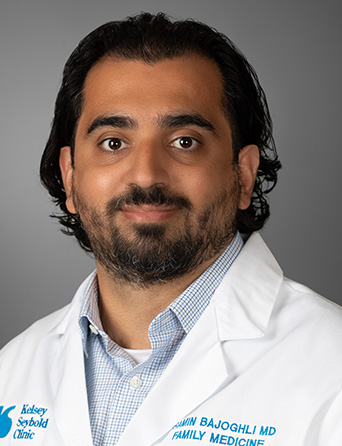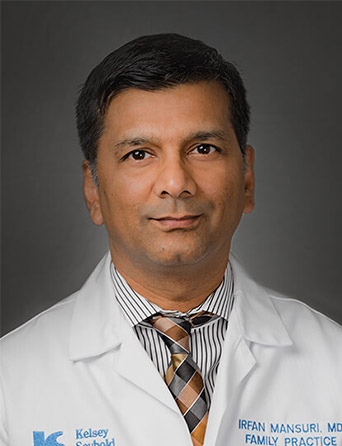Join Our eNewsletter!
Subscribe to our monthly newsletter to receive encouraging advice to help you lead a healthy lifestyle.

Men Aren't Proactive About Their Health Needs – Which Is a Mistake
Know a man who doesn't like to go to the doctor? You're not alone!
People joke how men don’t like to go to the doctor, but it certainly seems to be a widely held belief. A national survey by Cleveland Clinic revealed 72% of men would rather do household chores, such as mowing the lawn or cleaning the bathroom, than go to the doctor.
So, what’s the big deal for men about going to the doctor? It turns out the reasons are both psychological and practical: not wanting to take off work, not wanting to hear bad news or change eating habits, not wanting to be embarrassed discussing certain health issues, and just wanting to appear manly.
The results also revealed men don’t want to seem to complain about health issues or be weak – something that goes back to childhood. The problem is that not talking about health issues, especially with a physician, can lead to problems down the road when they are more serious.
Making Time for Prevention
As men age, preventive care and screenings are more important. Men of all ages should be screened for depression. Younger men in their late teens or early 20s, as well as at-risk men of any age, should be screened for Hepatitis C and sexually transmitted disease (STIs), including chlamydia/gonorrhea and HIV.
Men in their 30s need check-ups every few years, eye exams at least twice during their 30s, and cholesterol screening beginning around age 35.
Men in their 40s need to start screening for Type 2 diabetes, begin colon cancer screenings around 45, and have a general check-up at least every three years.
Men in their 50s should start to have PSA checks for prostate cancer around 55, begin annual check-ups, and get the shingles vaccine.
All of these health screenings and vaccines can help reduce the risk of developing a variety of diseases and medical issues. If caught early enough, the prognosis can be positive.

Healthy Lifestyle = Longevity
Researchers have been able to correlate healthy lifestyle habits with a longer life. As part of a massive study, researchers at Harvard T.H. Chan School of Public Health followed 120,000 participants for 28 to 34 years depending on gender. Men who met the criteria for all five habits lived 12 years longer, while women lived 14 years. What’s the secret? These five things:
- Healthy diet
- Healthy physical activity level
- Healthy body weight
- Never smoked
- Moderate alcohol consumption
If you are overdue for your annual exam or screenings, contact a Kelsey-Seybold physician to get back on track.
Meet Our Team
Our Family Medicine doctors provide services for adults and children at several Kelsey-Seybold Clinic locations throughout the Houston area, so you’re never far from the compassionate care you need.








